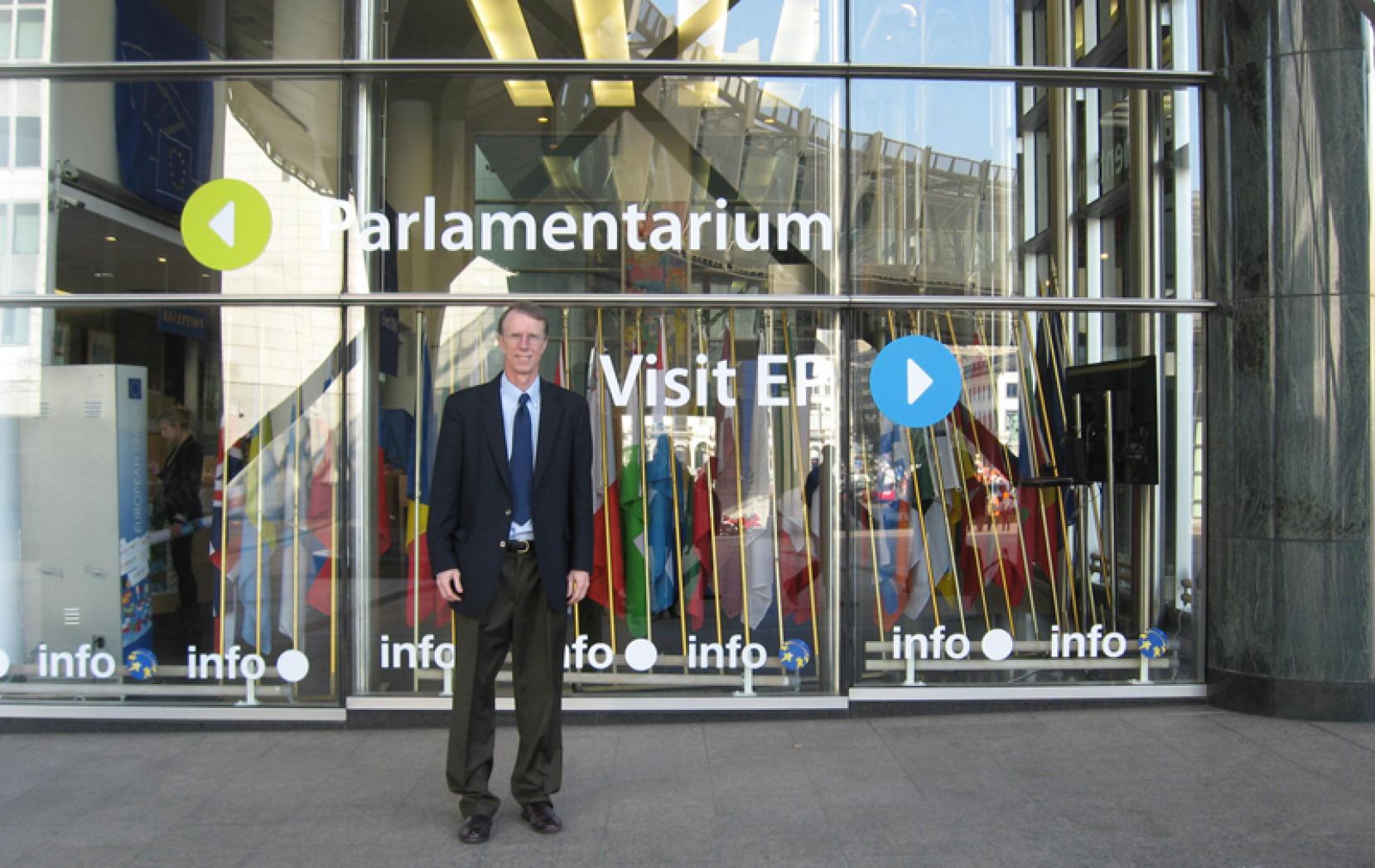Biomass for British power is stripping southern forests
SELC is taking our commitment to preserving Southern forests across the Atlantic Ocean. We are partnering with a coalition of environmental advocacy groups working to end the United Kingdom’s irresponsible subsidies for companies that burn trees to produce electricity. The UK is the largest user of biomass electricity in Europe, and a significant portion of that is fueled by trees cut from forests across the Southeast United States then shipped overseas.
SELC is joining with Biofuelwatch, Dogwood Alliance and NRDC in the Cut Carbon Not Forests campaign, seeking to convince the UK to end more than £1 billion a year in government subsidies to biomass electricity producers.

SELC Senior Attorney and General Counsel David Carr has been working to ensure the European Union adopts strong policies on biomass issues for years, including on this 2012 visit to lobby the European Parliament.Across the pond
Inexplicably, the UK classifies biomass electricity as a carbon-neutral fuel. It is anything but. Cutting live trees, shipping them thousands of miles across an ocean and then burning them to generate electricity both reduces forest capacity for carbon capture and releases more carbon pollution into the atmosphere. It is a lose-lose proposition for the environment and a definite contributor to climate change.
In addition to the subsidies, biomass producers are also exempt from paying Britain’s carbon tax.
“These wasteful, costly policies encourage dirty power rather than the adoption of truly clean renewable energy,” said SELC General Counsel David Carr. “And they put the forests of the Southeast at incredible risk.”
This UK policy exacerbates the damage done to forests by drought, wildfires, and other growing impacts of climate change. The British public doesn’t support these subsidies either — a 2019 poll found 82 percent worried about the impact on wildlife of trees being cut down to fuel electric plants.
Treating biomass generation as green energy is a costly mistake that the UK should quickly rectify. It is not only dirty energy — but it degrades forests and ecosystems on top of generating air pollution and carbon emissions.
